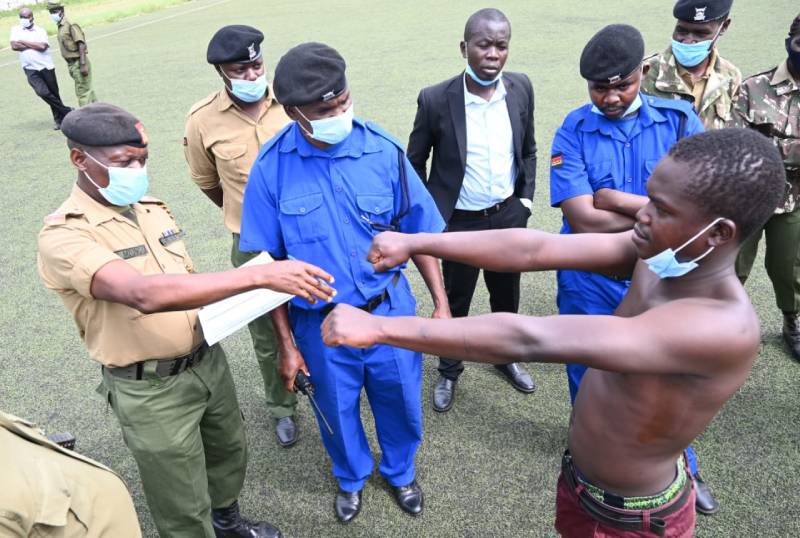
Police Recruitment in Kenya: Source(Kenyan Digest)
Recently, the National Police Service Commission (NPSC) declared that they were recruiting 10,000 police constables nationwide. Although it is assumed that it is a transparent exercise, the issue of malpractice and unjust disqualification is rampant.
In case you feel that you were unjustly disqualified in the process of recruiting into the police, there are official measures that you can follow to petition against the action and defend your rights.
This article also gives a step-by-step description of what to do, the channels of complaints to be used, and the remedial measures that might be taken by the Commission.
Step 1: Request an Explanation for Disqualification
Immediately after being disqualified, ask the recruitment officer in charge to clearly state the reason for your disqualification. This ensures you know the official grounds on which the decision was made.
Step 2: Gather Evidence and Documentation
Prepare supporting documents or evidence to challenge the decision. This may include academic certificates, identification documents, medical records, or any other proof that counters the stated reason for disqualification.
Step 3: Report the Incident
If you suspect malpractice, report it through the official channels provided by the NPSC. You can:
-
Visit the nearest police station to file a complaint.
-
Call the following hotlines: 0709099000, 999, 911, or 112.
-
Use the DCI’s confidential reporting system: #FichuaKwaDCI 0800 722 203.
Step 4: Write and Submit a Formal Appeal
Draft a written appeal letter explaining your case and attach all relevant evidence. Submit the appeal through the official NPSC channels or any of the reporting options above.

police recruitment
How the NPSC Reviews Recruitment Complaints
The NPSC is mandated under Regulation 14(13) to review recruitment exercises and ensure compliance with the prescribed standards. Where complaints or irregularities are reported, the Commission may launch investigations into the entire process.
Corrective Steps NPSC Can Take
Depending on the findings, the Commission may:
-
Take disciplinary action against recruitment officials involved in malpractice.
-
Annul results from affected recruitment centers and order a repeat exercise.
-
Nullify and repeat the entire national recruitment exercise if widespread irregularities are found.
-
Recommend prosecution of individuals suspected of committing criminal offenses during recruitment.
-
Undertake any other corrective action deemed necessary to safeguard the integrity of the process.
Functions of the NPSC During Complaints
When handling recruitment disputes, the NPSC has wide investigative powers. It can:
-
Conduct investigations in a fair and just manner, without being bound by strict legal technicalities.
-
Receive both oral and written statements from complainants.
-
Collaborate with other government agencies, departments, and organs to ensure accountability and justice.

Police IG Douglas Kanja speaking during Jukwaa la Usalama forum in Murang’a on August 19, 2025
Conclusion
It is not simple to get disqualified during the recruitment into a police force, and this becomes frustrating, especially when the individual feels that it was unjust. Nevertheless, the NPSC has a system that deals with such grievances.
In case you have been unfairly disqualified:
- Request a clear reason.
- Gather supporting evidence.
- Report the case as soon as possible.
- File a formal appeal.
These steps will help you guarantee that your case is heard, and the recruitment process will also be fair and transparent to all candidates.
Read also: Ryan Injendi Hits Out at Mudavadi Over Malava UDA Nominations

 General News6 days ago
General News6 days ago
 General News2 days ago
General News2 days ago
 Politics2 days ago
Politics2 days ago
 General News6 hours ago
General News6 hours ago














